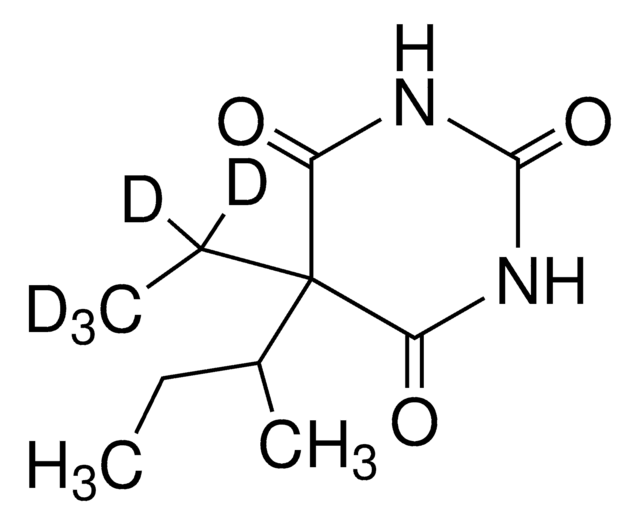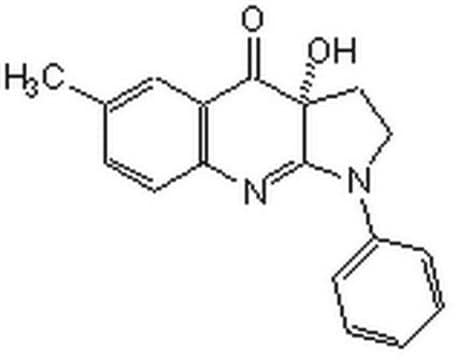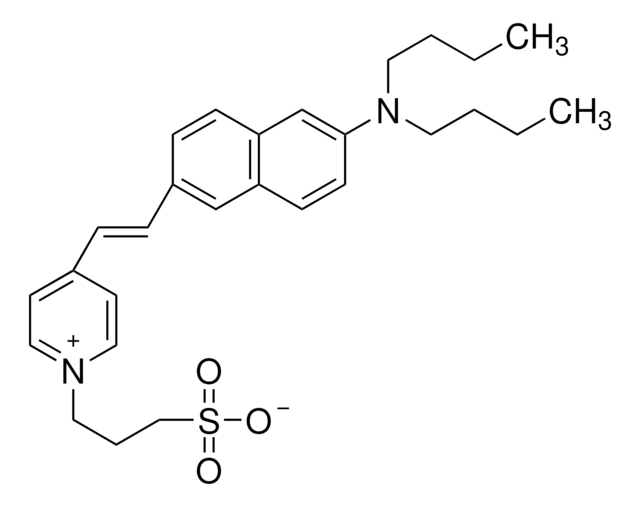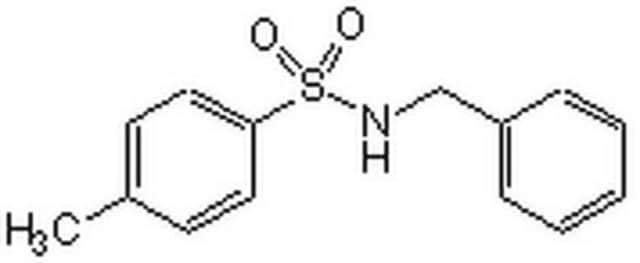B0560
(−)-Blebbistatin
≥98% (HPLC), solid, cell cycle inhibitor
Sinónimos:
1-Phenyl-1,2,3,4-tetrahydro-4-hydroxypyrrolo[2.3-b]-7-methylquinolin-4-one
About This Item
Productos recomendados
product name
(−)-Blebbistatin, solid, synthetic
form
solid
solubility
DMSO: 5 mg/mL
chloroform: soluble(lit.)
ethyl acetate: soluble(lit.)
methanol: soluble(lit.)
methylene chloride: soluble(lit.)
storage temp.
−20°C
SMILES string
Cc1ccc2N=C3N(CC[C@@]3(O)C(=O)c2c1)c4ccccc4
InChI
1S/C18H16N2O2/c1-12-7-8-15-14(11-12)16(21)18(22)9-10-20(17(18)19-15)13-5-3-2-4-6-13/h2-8,11,22H,9-10H2,1H3/t18-/m1/s1
InChI key
LZAXPYOBKSJSEX-GOSISDBHSA-N
General description
Application
Biochem/physiol Actions
Features and Benefits
Storage Class
11 - Combustible Solids
wgk_germany
WGK 3
ppe
dust mask type N95 (US), Eyeshields, Faceshields, Gloves
Certificados de análisis (COA)
Busque Certificados de análisis (COA) introduciendo el número de lote del producto. Los números de lote se encuentran en la etiqueta del producto después de las palabras «Lot» o «Batch»
¿Ya tiene este producto?
Encuentre la documentación para los productos que ha comprado recientemente en la Biblioteca de documentos.
Los clientes también vieron
Artículos
Cell cycle phases (G1, S, G2, M) regulate cell growth, DNA replication, and division in proliferating cells.
Cell cycle phases (G1, S, G2, M) regulate cell growth, DNA replication, and division in proliferating cells.
Cell cycle phases (G1, S, G2, M) regulate cell growth, DNA replication, and division in proliferating cells.
Cell cycle phases (G1, S, G2, M) regulate cell growth, DNA replication, and division in proliferating cells.
Nuestro equipo de científicos tiene experiencia en todas las áreas de investigación: Ciencias de la vida, Ciencia de los materiales, Síntesis química, Cromatografía, Analítica y muchas otras.
Póngase en contacto con el Servicio técnico















